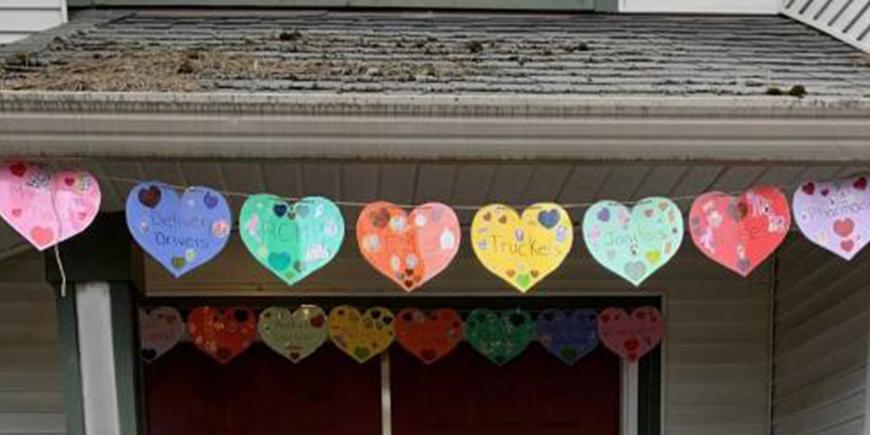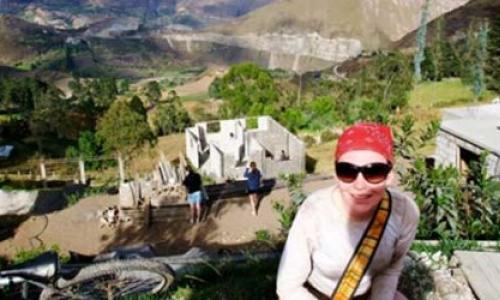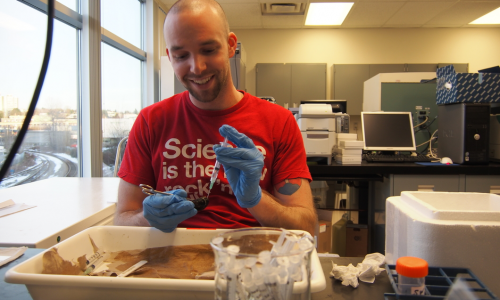
In the mid-fourteenth century, a great plague ate its way through Europe, Asia and North Africa, slicing the world’s population by millions and leaving in its wake widespread devastation. At the time, understanding of sickness and disease was limited to a prescription for the wrath of God or an unfortunate alignment of the planets. There were no ICUs. No respiratory machines. And certainly, no social distancing. And yet, there were frontline workers – doctors, monks and nuns - many of whom lost their lives in the fight against the Black Death.
After seven hundred years of scientific discoveries and technological advancements, we are still just as reliant on our frontline workers. During this global pandemic, we are grateful for our healthcare practitioners, for those who make and deliver food, for parents and caregivers. No matter the time, we will always need them.
When I began my co-op at a non-profit organization in early January, being sick meant nothing more than a sick day. Now, in mid-April, coronavirus seems to be the only thought in the global mind. What it means to be an essential service has changed, and this transition has required immense effort and adaptation. Our organization works with children, youth and adults with developmental delays and disabilities, offering supports such as Shared Living and community outreach activities. Normally, many of our staff are directly interacting with the individuals we serve. This interaction has changed, but our support has continued. It just looks different now.
Indoor events have been replaced by activity kits; colouring books, wooden birdhouses, and acrylic paints sent out to children and families. Staff wear polka-dotted safety masks stitched together by community members, and deliver supplies to families in need. They fill up a grocery cart for an elderly caregiver who can’t leave her house and visit a mother who is self-isolating in her basement, while her husband stays upstairs with their three young kids. Everyone is working tirelessly to support people during this difficult time.
For me, this position has pushed the bounds of what I thought co-op could be. I started work in January looking to gain skills in comms planning and event promotion. Now, I am learning about crisis communication and how to interview people during a pandemic. My writing has had to become sharp, quick and captivating in under 200 words.
Unofficially, my new job description is ‘Storyteller’ and I seek out silver linings. I write about a string of paper hearts printed with the names of essential workers, hanging in the entryway of one of our homes. I write about people donating fridges and freezers for our food storage. I write about the overwhelming generosity we have received throughout the last month.
This new job description also includes ‘Professional-writer-of-highly-detailed-manuals-for-video-calling-apps’. As our organization shifts into the virtual space, I have been creating step-by-step guides, and gathering tips and tricks for maintaining engagement in online meetings (tip 1: don’t forget to mute your mic). It’s a new world that has quickly become the new normal. But despite these changes, our staff’s commitment to those we serve has not faltered. They’re working longer hours, making countless home deliveries, and finding creative ways to bring the connection to those feeling isolated. I am humbled to write their stories.
When you work at a non-profit, you will notice one extraordinary and unanimous thing; everyone’s heart is in their work. And during a pandemic, when so many of those we serve are in desperate need, this dedication is clearer than ever.
While frontline staff and essential workers are highlighted during global emergencies, let’s also remember to thank them after a crisis passes, when their battles continue on silently. At our all-staff Zoom meetings, we are reminded that at some point in our lives, each of us will have to rely on the help of others. Whether we look back on history, or forward into the future, there will never be a replacement for human kindness, generosity and selfless dedication.
Thank you to all the essential workers.
Beyond the Blog
-
For more opportunities like Juliette's, visit the Communications co-op page!















